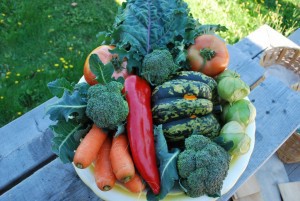 I lived in London, England for a year in my early twenties, travelling through London Bridge train station on my way to work. I would often pass by a young man sleeping rough and asking for change. I had very little spare money myself at that time, but I wanted to help. I offered him an apple from my packed lunch. He showed me his missing front teeth; he couldn’t eat apples. In his mid-twenties, even his remaining teeth were not up to raw or crunchy foods.
I lived in London, England for a year in my early twenties, travelling through London Bridge train station on my way to work. I would often pass by a young man sleeping rough and asking for change. I had very little spare money myself at that time, but I wanted to help. I offered him an apple from my packed lunch. He showed me his missing front teeth; he couldn’t eat apples. In his mid-twenties, even his remaining teeth were not up to raw or crunchy foods.
We know eating healthily is good for us and we know that low incomes impact the affordability and accessibility of healthy foods, but what happens when poor health prevents us from eating well?
I learned a lot from that young man, not the least of which is that we often overlook the issues of oral health and food security. In a country like Canada, where most dental care is not part of our public health care systems, poverty impacts both the affordability of healthy foods and access to dental care needed to eat those foods. It’s a hidden reality and reinforcing cycle that contributes to poor health outcomes. Many wind up in emergency rooms, self-treating or suffering on their own. We need healthy teeth to eat healthy foods, and eating healthily is important for healthy teeth.
Fast forward to today and a relative of mine is facing similar problems. She is losing a front tooth and as a senior, she faces a host of other ailments, including medications that impact her appetite or upset her digestion. Dealing with chronic pain over the last number of years has impacted her food preferences. In combination, this has eliminated many fresh or raw foods, seeds, nuts, and whole grains breads. Instead, softer foods that are easy to digest are the go-to fare.
In October 2016, the BBC Radio 4’s The Food Programme produced an episode about diet and dementia; not only the link between the kinds of foods people are eating and dementia prevention, but also the challenges of eating with dementia. Preparing food and the process of eating becomes another three-times a day struggle.
This struggle extends to those living with long-term illnesses, regardless of age. Individuals living with cancer, for example, may be prevented from eating well by the impacts of the cancer itself, such as chronic pain, depression, and treatment side effects. Unfortunately, those healthy foods could also be an important part of recovery and healing.
So, where do we go from here? For me, greater awareness and understanding is needed for those experiencing the intersection of these issues. We have still not fully valued healthy eating as a foundation for health and we need policies and programs to shift our food systems so that we all have access to healthy, just and sustainable food.
In addition, we need to reinvest in disease prevention and away from our crisis states. For example, publically funded and accessible preventative dental care for those without private dental insurance, or even universal dental care, would go a long way for many. There is a great deal of research and attention on this for children, but little for adults experiencing income insecurity.
Blog written by: Satya Ramen, Senior Coordinator, Ecology Action Centre
Adventures in Local Food is your source for food news in Nova Scotia, from pickles to policy. It is a project organized by the Ecology Action Centre.
Learn more about our program at https://www.ecologyaction.ca/ourfood
Or follow us on:
Twitter: @OurFoodProject and @EcologyAction
Facebook: The Ecology Action Centre
Instagram: ecologyaction



